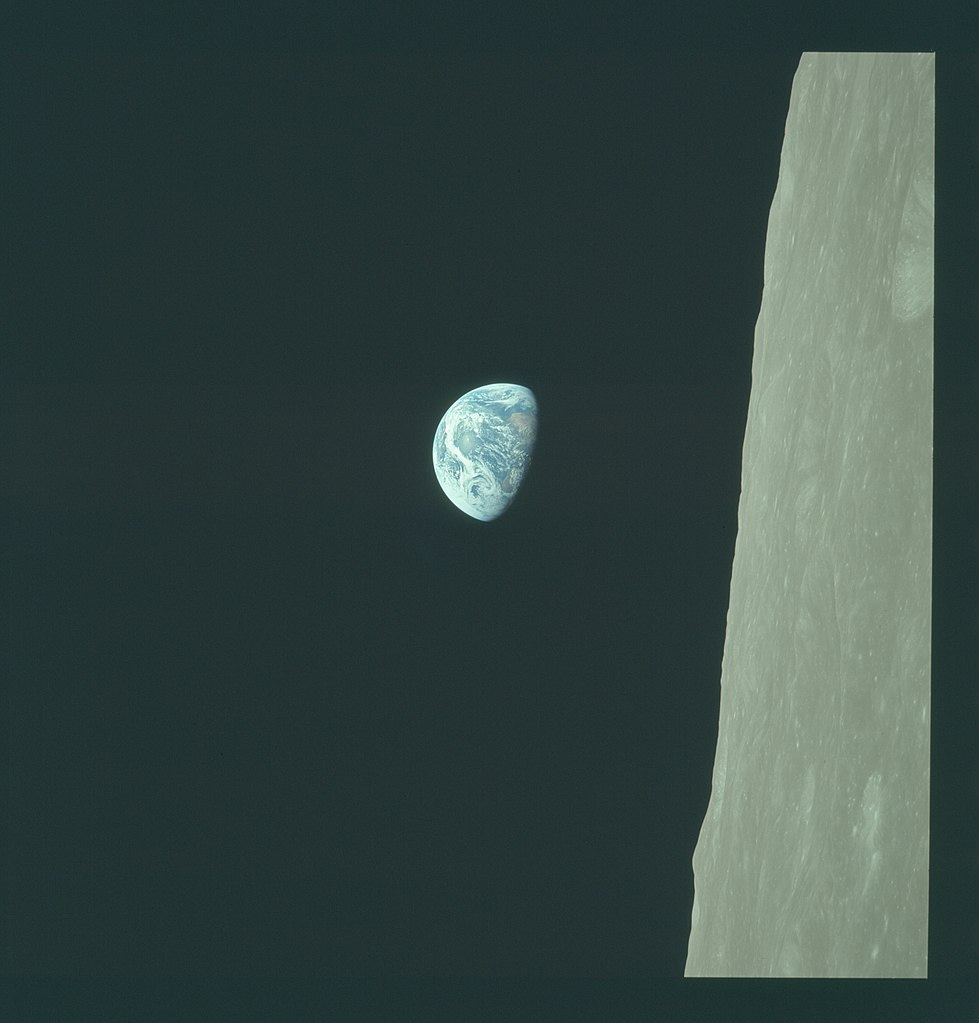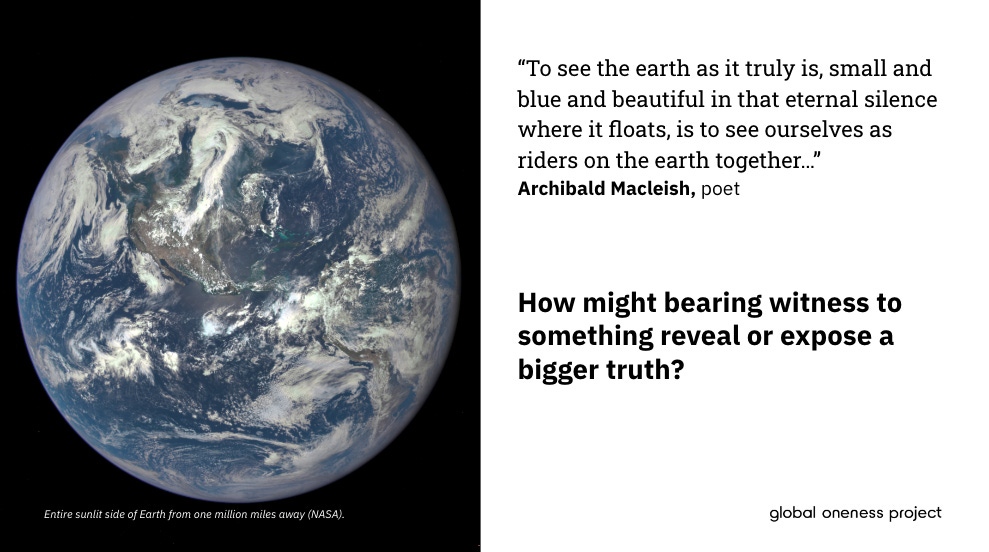
I woke early this morning to write. I usually write the Saturday morning post on Fridays, but yesterday was a travel day. Sitting at my desk at 6:30 am PST, I opened an email from Cleary Vaughan-Lee, Executive Director of the Global Oneness Project, which changed my direction today. The subject line: Honoring Astronaut Frank Borman.
Frank Borman died this week at 95. Cleary writes:
In 2014, our film team travelled to Borman’s hometown in Billings, Montana, to conduct three days of interviews to make the film Earthrise. The film tells the story of humanity’s first journey beyond Earth’s orbit in 1968. Told by the Apollo 8 astronauts, the 30-minute film recounts their experiences and memories, while exploring the beauty, awe, and grandeur of the Earth against the blackness of space.
I’ve written about the Global Oneness Project before. I am a fan. In an April 4, 2022 post titled The art (and science) of perspective shifting, I wrote about the Earthrise film and discussion guide, and Amanda Gorman’s poem, Earthrise. But I had not noticed a resource that Cleary shared in her email—Earthrise Conversation Cards, designed to accompany the film, and the discussion guide.
This morning, I walked through all 29 cards in Google Slides. It’s a beautiful, moving resource that encourages reflection and perspective shifting. Here are suggestions included on card 1 for how to use them.
How To Use
As pre-film warm-ups to introduce
the topics and themesAs catalysts for post-film discussions
As writing prompts for personal reflections or essays
To spark ideas for action or
class projects
I titled this post from card 11:
I encourage you to explore the Global Oneness Project: Stories and lessons for growing minds. Here’s how they describe their mission:
We are a free multimedia platform for educators and students. Through our immersive storytelling and curricula, we aim to plant seeds of empathy, interconnectedness, and a sacred relationship with our planet. Use our award-winning films, photo essays, and essays to learn about social, cultural, and environmental issues from individuals and communities worldwide. For grades 3-12, our stories and lessons encourage students to broaden their perspectives and worldviews while fostering universal human values and respect for the living world. We aim to bring universal values into the lives of educators and students.
You’ll find gems like 15 Lesson Plans: Our Common Humanity, and the student art gallery with an image analysis activity using the Visible Thinking Routine, “See, Think, Wonder” from Project Zero, Harvard Graduate School of Education.
Take care. Be well. Write a poem.



